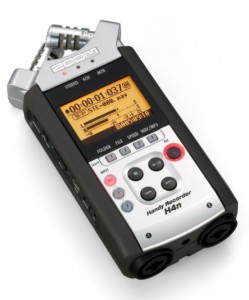 “Without inclusive preparation, musicians can’t be cool in high-stakes situations”
“Without inclusive preparation, musicians can’t be cool in high-stakes situations”
–The Musician’s Way, p. 148
Performance anxiety stifles the ambitions of countless musicians.
Yet the path to becoming a fearless performer is open to any musician who chooses to do the necessary work.
This article zeros in on a fundamental component of that work: task mastery.
Causes of Stage Fright
As I describe in “The 3 Roots of Performance Anxiety,” stage fright problems abound among performers who lack personal, situational, and task-related preparation.
Still, no matter what sorts of personal interference or performance situations we encounter, by fully mastering our music and the mental skills that practice and performance entails, we’re better able to cope with pressures and any personal and situational issues that arise.
Hence, task mastery forms the basis for building confidence on stage.
Even so, almost all of the anxious musicians I’ve coached were unaware that their task skills, particularly their mental skills, were insufficient, so I’ll focus on task mastery here.
See Part II of The Musician’s Way for additional strategies to acquire not only task mastery but also personal strength and expertise with performance situations.
“Task mastery forms the basis for building confidence on stage.”
6 Steps to Improve Task Mastery
1. Choose Easy, Brief Repertoire
If you want to gain on-stage security, it’s crucial that you learn easy yet high-quality music.
By tackling easy and relatively brief compositions, you can repeatedly go through the steps of mastering and performing a composition, refining your learning process with each new piece. Later on, you can apply your new abilities to longer and more complex repertoire.
For now, start with one short piece that you can master in 1-3 days.
2. Prepare any Music Score
If you’re learning from a music score rather than by ear, translate unfamiliar text, number the measures, and divide the music into sections, possibly denoting sections with letters in boxes.
Estimate your initial and final tempos, and then write in provisional metronome settings.
3. Establish Interpretive & Technical Maps
Develop a preliminary interpretive plan by listening to recordings and coming up with your own ideas; then, pencil in dynamics, phrase marks, articulations and so forth.
Next, work out fingerings, bowings, etc., and write them in wherever they aren’t obvious.
Such marking of a score facilitates deep learning.
4. Practice Deeply
Working in sections, practice deeply and deliberately.
Combine imaging and executing, direct your mental focus, manage repetition, solve technical problems, and choose a tempo that enables you to execute with ease.
Part I of The Musician’s Way spells out deep practice and mental focus strategies suited to both instrumentalists and singers.
5. Feel Ahead
As you play or sing one gesture, sense the sound and execution of the subsequent one.
Such feeling ahead is essential to fluency in practice and on stage.
6. Practice Performing
As soon as you have an easy piece securely learned, practice performing it – perhaps at home and for a supportive friend.
Record each performance trial, and then evaluate your accuracy, expressiveness and mental focus as well as how you felt.
Then, use your observations to plan upcoming practice sessions.
* * *
After mastering one easy selection, work on another, and then another, so that you acquire a repertoire of accessible, appealing titles.
With an ample amount of easy music under your command, schedule longer practice performances in front of friends, at open mic events, and so on, using each performance experience to grow your skills and confidence.
Bear in mind that performance skills – such as those required to focus under pressure and manage errors – improve with steady practice. Practice performances, therefore, are vital to the confidence-building process.
In closing, let’s acknowledge that task mastery is indispensable for acquiring security on stage but may not fully allay anxiety among people who wrestle with gnawing personal matters.
When nervous impairment persists despite musicians’ best efforts, performers should seek help from qualified therapists or performance coaches.
Related posts:
The 3 Roots of Performance Anxiety
Assessing Your Performance Skills
Becoming a Confident Performer
Learning the Art of Performance
Stage Power
For more about my views on task mastery and performance anxiety, see: “Gerald Klickstein on Music Performance Anxiety,” published in 2016 on the Psychology Today website.
© 2017 Gerald Klickstein
Photo © Ollyy, licensed from Shutterstock.com


No matter how good your in playing your instrument when you get up on stage the feeling is really different. You will get butterflies in your stomach the moment you see the spectators in front of you. This article will help you deal with this dilemma at one point.